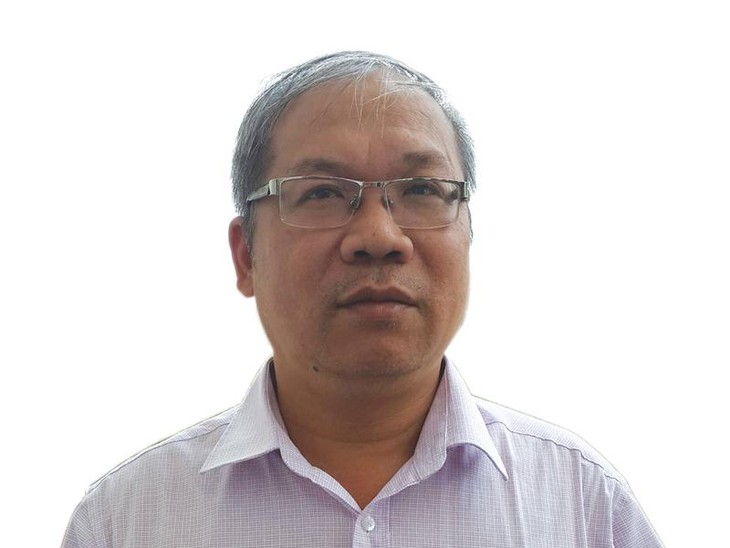(VOVWORLD) - Caring for national contributors has received great attention from the Party, State, and society, especially during the holiday period. The ordinance on preferential treatment for national contributors has specific incentive policies for martyrs’ relatives, war invalids, and soldiers who need medical attention. Nguyen Duy Kien, Deputy Director of the Department of National Devotees of the Ministry of Labor, Invalids, and Social Affairs, explains these regulations in detail.

Nguyen Duy Kien, Deputy Director of the Department of National Devotees, Ministry of Labor, Invalids, and Social Affairs. (Photo: baodautu.vn)
|
Q: Although caring for national contributors is a perpetual duty, is there any special treatment for martyrs’ families, invalids, and soldier patients on War Invalids and Martyrs Day on July 27?
Mr. Kien: As usual, every year on July 27 or on national holidays, the State President issues a decision on presenting gifts to beneficiary families. There’s no exception this year. A decision was signed late last month in regards to presenting gifts to people with meritorious services to the revolution and their next of kin. There are 2 levels of gifts – 200,000 VND and 400,000 VND.
Q: The latest general inspection on the implementation of preferential treatment for national contributors was conducted in 2014 pursuant to the Prime Minister’s directive. Can you tell us about the inspection’s outcomes?
Mr. Kien: In 2014 the Ministry of Labor, Invalids, and Social Affairs coordinated with the Central Committee of the Vietnam Fatherland Front, to conduct a general inspection on the implementation of policies for the people who rendered great services to the nation. At that time, according to reports by provinces, there were more than 7,000 cases which were asking for certification as war invalids. The pending cases are attributed to the lack of documents required to compile the files. Many cases aren’t recognized as war invalids, although they have been checked for physical wounds or their wounds haven’t been rated serious enough.
Q: How has the government handled cases of laxity in providing preferential treatment for martyrs’ relatives, war invalids, and soldier patients?
Mr. Kien: Based on the results, the Ministry of Labor, Invalids, and Social Affairs has worked with the Defense Ministry to promulgate a circular to handle the people who don’t have any papers to use as a foundation to prove they were injured during the wars. The new and simple point of the circular is that there will be no need of witnesses for soldiers or policemen who were wounded during the anti-French and anti-American wars, and national protection war in southwestern border. If they have physical wounds, they will be able to enjoy preferential treatment for war invalids. The Ministry has also reported to the NA Standing Committee which has agreed, and a special procedure has been applied. As a result, by the end of last June the number of uncertified war invalids dropped to nearly 5,000 people. In addition, inspection has strongly increased. This is one of the more important methods to review the shortcomings of policies on preferential treatment for social beneficiaries and its implementation.
Q: The current guideline says the family of a national contributor should have a living standard equal to or higher than the average living standard of the locality. What will the revised ordinance on preferential treatment for national contributors say?
Mr. Kien: The ordinance on preferential treatment for national contributors will be comprehensively revised. We hope this revision will help some pending, urgent matters relating to policies, for many years. The regime on one-time allowances for those who participated in resistance wars and are rewarded with resistance war medals, is one such example. The regime needs to be adjusted to match current economic situations. Second, is a regime for invalids, who are at the same time soldier patients or invalids who also lose their labor capacity. We already have regulations for these two subjects which are dependent on certain conditions. But now we suggest removing these conditions because most the subjects are old now. Finally, some people who had been identified to have an injury rate of less than 21%, receive one-time allowances. Everything has now changed, and that's why we will ask for re-check of these people.